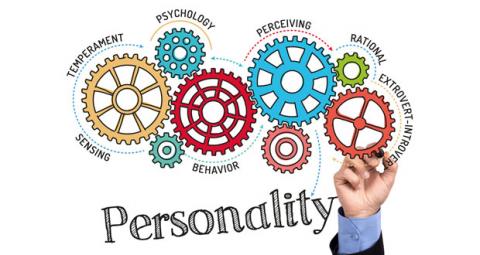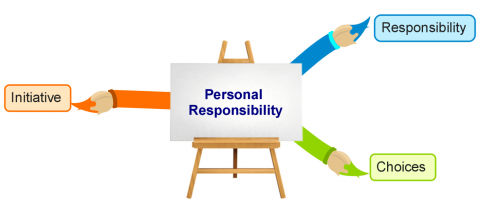+1(209) 348-9544
order@myessayservices.com
+1(209) 348-9544
order@myessayservices.com
![]() Are you in High School, College, Masters, Bachelors or Ph.D and need someone to help in your homework? All you need is to ask for research paper help written by a specialist in your academic field. When you buy an essay online from My Essay Services, we offer you an original, nil plagiarized and unique paper written by a dedicated writer who is PhD or Masters qualified. MyEssayServices.com is an experienced service with over 9 years experience having delivered over 83,000 essays over the years.
Are you in High School, College, Masters, Bachelors or Ph.D and need someone to help in your homework? All you need is to ask for research paper help written by a specialist in your academic field. When you buy an essay online from My Essay Services, we offer you an original, nil plagiarized and unique paper written by a dedicated writer who is PhD or Masters qualified. MyEssayServices.com is an experienced service with over 9 years experience having delivered over 83,000 essays over the years.

 The big five personality traits entail the broad categorization of the personality that manifests in the human beings. The five aspects or personalities that all people may indicate include conscientiousness, openness, neuroticism, agreeableness, and extraversion. The five factors have some more correlated and specific factors that determine human behavior. The above model leads to the coverage of all the aspects of the personality traits without having to cause any overlaps (Dessler, 2000). The five factors are also manifested in different cultures.
The big five personality traits entail the broad categorization of the personality that manifests in the human beings. The five aspects or personalities that all people may indicate include conscientiousness, openness, neuroticism, agreeableness, and extraversion. The five factors have some more correlated and specific factors that determine human behavior. The above model leads to the coverage of all the aspects of the personality traits without having to cause any overlaps (Dessler, 2000). The five factors are also manifested in different cultures.
The openness to experience refers to the ability of the person to take up new ways and approaches. The openness to experience is indicative of the level of intellectual curiosity and the inclination to novel ideas (Mathis & Jackson, 2003). The open people have a tendency of changing easily and adapting to the new environment and policies fast enough. A person that displays the conscientiousness tends to be organized and reliable since they follow a certain heuristic in their lives in terms of the modes of performing work. The people that indicate this trait tend to be more planed and organized with an aversion to the spontaneity.
Extraversion is a personality aspect that is manifested by the high tendency of the person to adopt to the group aspect (Mathis & Jackson, 2003). Therefore, people that have this character trait tend to be more sociable and produce better results when they are in company of the other people.
Agreeableness refers to the tendency of a person to be compassionate to the other people instead of being antagonistic. It manifests in the outright will to be accommodating of the other people based on a prima facie assessment. Neuroticism refers to the tendency of the people to come up with the emotional experience (Dessler, 2000). The people that have this trait tend to be more likely to show unpredictable behavior.
Myer-Briggs type indicator is a psychometric questionnaire that is designed to assess the psychological preferences and how a person will perceive the world and make decisions. The questionnaire is based on the topological theories are proposed by Carl Jung. The test is also based on four factors namely inquisition thinking, feeling and sensation. The theory states that the factors mentioned above are present in all the people and most of the people have one dominant typology, which will determine most of their actions (Mathis & Jackson, 2003). The perception differs from the five forces theory by that fact that the theory allows the assessor to provide for the overlapping of the aspects (Mathis & Jackson, 2003).
It is however challenged by the academics for its lack of methodological validity. The test does not have the same reliability with the big five personality aspects (Dessler, 2000). The people that make their decision according to sensation have to experience a situation first for them to make their decision. The people that make their decision based on intuitions do not have to be presented with a scientific basis for a decision.
 They rely on their gut feeling more for the development of an opinion over a certain aspect. The people that make their decision based on the feeling have a tendency towards emotional behavior (Dessler, 2000). They are also more unstable hence less predictable. The people that make their decision based on thinking have to rely on the logic and presence of concrete evidence in the environment. Therefore, there is no place of abstracted actions. The failure of the approach manifests in the vagueness of the definitions and the high possibility of presence of overlaps in the definition and operationalization of the theories.
They rely on their gut feeling more for the development of an opinion over a certain aspect. The people that make their decision based on the feeling have a tendency towards emotional behavior (Dessler, 2000). They are also more unstable hence less predictable. The people that make their decision based on thinking have to rely on the logic and presence of concrete evidence in the environment. Therefore, there is no place of abstracted actions. The failure of the approach manifests in the vagueness of the definitions and the high possibility of presence of overlaps in the definition and operationalization of the theories.
Another way of assessing the Disc as advanced by the psychologist William Moulton. The assessment of personality using the tool centers on the four varied behavioral traits. The traits that are covered by the assessment include dominance, inducement compliance, and submission. The tool is mainly used for the assessment of the behaviors and not personality. The tool is important since the people with the same personality may indicate different behavior in their workplaces (Mathis & Jackson, 2003). The tool has been developed to fit the needs of the users to the extent of it losing the validity. The tool ought to be applied in the explanation of why people of the same personality may behave differently at the work places.
Use of personality test is a welcome move in the modern work place. The application of the personality tests in the assessment of employees lead to the matching of jobs to the people that are bests suited to conduct it (Dessler, 2000). This means that the performance ought to be tied to the level of the personality that the person indicates.
The companies that use personality tests can understand the limits of their employees and cannot subject them to the same conditions (Dessler, 2000). Therefore, the employer can understand the behavior of the employees in order for him or her to configure the work environment. It is also effective in the assessment of the rewards and disciplinary actions that will lead to the most efficient results. The use of the personality tests has led to the creation of jobs that are suited to the personality.
References
Dessler, G. (2000). Human resource management. Upper Saddle River, NJ: Prentice Hall.
Mathis, R., & Jackson, J. (2003). Human resource management. Mason, Ohio: Thomson/South-western.
Mondy, R., Noe, R., & Gowan, M. (2005). Human resource management. Upper Saddle River, N.J.: Pearson Prentice Hall.
 First definition
First definition
Personal responsibility can be described as the willingness of a person to both accept the importance of the standards that the society has decided to establish on his behavior as well as the making of hard efforts in a bid to live to the set standards. Personal responsibility states that when individuals as they often do, fail to meet their goals and aspirations, they do not turnaround and start looking for some external factor that exists outside themselves in order to blame it (Jarecke, 2000). However, they take full responsibility for the situation and have the mindset that indeed what has happened in them not fulfilling their goals and dreams or reaching expected standards is internal and not external.
Second definition
Personal responsibility can be described as the idea that a human being should choose, and cause his or her actions. There is always a choice that one has to make almost every day of his or her life and, therefore, this action in many cases involves personal responsibility. One should assume personal responsibility even when it comes to the social behavior that the society possesses (Jarecke, 2000). This is for the reason that at the end of the day, the action is caused by a certain human being and, therefore, the said human being should take up personal responsibility. It is the internal self that often causes the decision and therefore, this is the reason where there was rise to the corollary idea that because persons are the ones that cause their actions, then they can be held morally and legally liable. Human actions are not as a result of agent's control and since the 19th century, personal responsibility has been seen as a virtue that leaders should have.
Third Definition
Personal responsibility can be described as one taking control of his or her conscious responses to the events as well as circumstances in one's life (Brown, 2009). Every person is often responsible for him or herself, and this is whether the person likes it or not. Whatever one makes up his mind to do with his or her life is up to them and what can be done to such people is only guidance. One might not be able to control whatever happens all the time in his or her life. However, personal responsibility shows that one is completely responsible for what he or she is, acts as well as the response that one has towards several things. In our daily lives, there are people that are known to constantly blame their failures on each and everything but themselves.
What personal responsibility means to me
All human beings are ego driven creatures. This often starts from a young age where a person develops a self-identity and image which is often constructed on the beliefs of how we see ourselves (Jarecke, 2000). Most people often think of themselves as being pretty decent people and they being average that other persons in certain areas and worse than average in several others. Therefore, most people do believe, therefore, that they see the world realistically and they, therefore, act rationally. There are however times where on deviates from the path and does something wrong.
At this point where we make mistakes, there is often the establishment of a gap between our questionable behavior and the blaming other persons for the mistake. This is because unsurprisingly many people when they are in a tight spot and their behavior has threatened self-concept, the ego ain the body automatically goes into defense mode. This is where a person starts the issuance of self-justifications that are designed to protect him. The higher the moral, emotional stakes, financial and higher self-concept the greater the dissonance that arises. It is very difficult for many people admit to personal responsibility, and all they seek to do is justify themselves in order to preserve their self-image (Brown, 2009).
I believe that as a person, I have very little control over international affairs, economic policy and the government. However, changes like these can often disrupt one's life and force one to change his or her plans. However, very little that can be done regarding this situation. I believe that taking personal responsibility is understanding the fact that one cannot control certain things in life. These things often happen and they will. They have never given warning to any person nor do they try and prepare a person. Therefore, I believe that I might not be able to change the uncontrollable (Greenville, 2010). However, I might in full capacity try to understand what is going on and, therefore, control the circumstances. One of the most famous quotes by Jean Paul satre sums up personal responsibility, and it shows that indeed there is no way one can be able to change the uncontrollable. The quote state that 'Man is condemned to be free, because once thrown in the world, he is responsible for everything he does (Brown, 2009)." This, therefore, shows that a man is responsible for each and every deed that he does in the world. For this reason, man should always strive to make sure that he is on the right path and that he takes personal responsibility for all his actions.
I believe that responsibility is of importance and is the foundation of personal development in general. One should be able to own up to his or her mistakes without hesitation. For example, if a man or woman makes a mistake on the project at work, he or she should admit the mistake in order to achieve other things such as respect and trust from other fellow employees. A personal responsible man is often known to be honest as he tries to ensure that the external forces do not cross paths with his internal paths.
It is often very rare for one to willingly own up for their mistakes. I understand that if a person builds a reputation for being the man or woman that accepts responsibility for his actions, then people in many cases often ignore the fact that he or she made a mistake (Brown, 2009). These persons can be said to be personally responsible as they understand what it takes in order to be personally liable and responsible. I believe that personal responsibility takes serious change in order to be effected. In order for one to make this bold step, he or she should have serious courage. I therefore believe that one should not wait for circumstances to be happy but rather accept that circumstances that exist and take personal responsibility for his or her life.
Reference
Brown, Alexander. 2009. Personal responsibility: why it matters. London: Continuum.
Jarecke, G. W., & Plant, N. K. (2000). Confounded expectations: The law's struggle with personal responsibility. Carbondale: Southern Illinois University Press.
Greenfield, K. (2010). The myth of choice: Personal responsibility in a world of limits. New Haven: Yale University Press.
Browse More Essay Topics 24/7/365 Support 11+ Yrs in Essay Writing Pay for Quality not Quantity Score that A+ Grade
Affordable Papers
Research Paper for Sale
Cheap Research Papers
Buy Term Papers
Buy Research Paper
Write My Paper
Buy an Essay
Cheap Essay Writer
Write my Essay
Thesis Help
Dissertation Help
Paper Writing Service
Pay for Homework
Pay for Research Paper
Do My Essay for Me
Pay for Essay
College Papers for Sale
Do My Homework for Me
College Essays for Sale
Buy Research Papers Online
Buy College paper
Client: "(Berlin, G.K., CA)"
Topic title:"Leadership shortfalls in Blue Chips"
Discipline: "Economics"
Pages: 5, (APA)
" Awesome, the writer delivered it as required by the professor. They also sent me a plagiarism & grammar report Wow!. I was worried about how the essay would turn up but this is exactly what wanted. Thank you and will be back with a longer essay"
Accounting Research Papers
Business Research Papers
Communication Research Papers
Computer Science Research Papers
Economic Research Papers
Film Studies Research Papers
Finance Research Papers
Geography Research Papers
History Essays
Psychology Research Papers
Political Science Research Papers
Nursing Research Papers
Mathematics Essays
Management Essays
Literature Essays
Law Essays
World Affairs Essays
Technology Essays
Sociology Essays
Science Essays
Religion Essays
+1(209) 348-9544
Terms
Privacy
Sitemap
Frequently Asked Questions
0% Plagiarism Guarantee
Money Back Guarantee
Revision Policy
